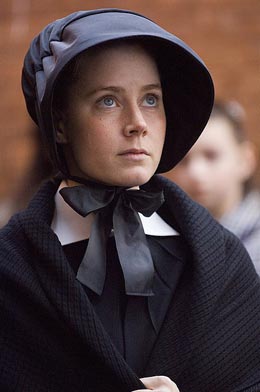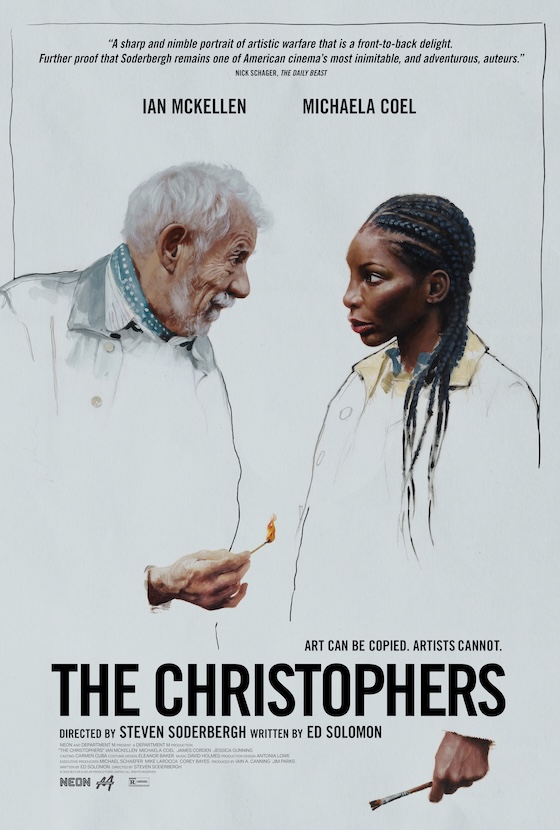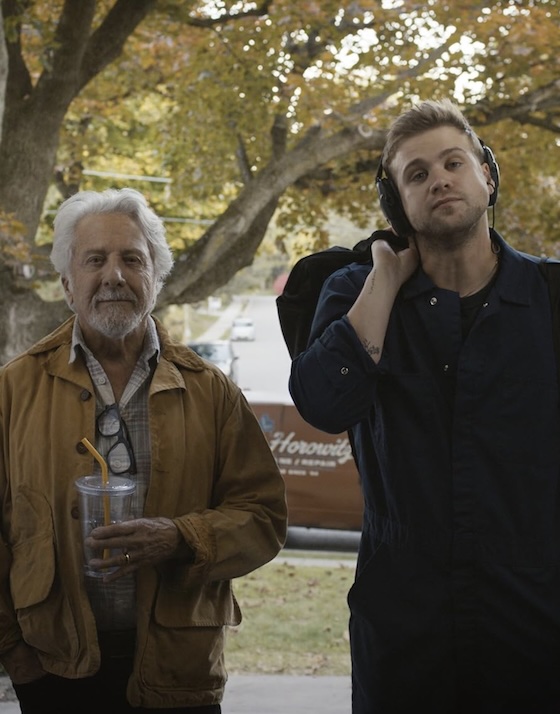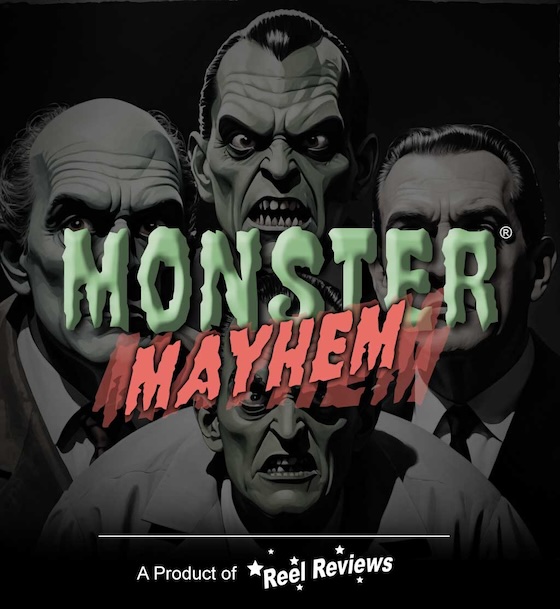{googleAds}
<div style="float:left">
<script type="text/javascript"><!--
google_ad_client = "pub-9764823118029583";
/* 125x125, created 12/10/07 */
google_ad_slot = "8167036710";
google_ad_width = 125;
google_ad_height = 125;
//-->
</script>
<script type="text/javascript"
src="http://pagead2.googlesyndication.com/pagead/show_ads.js">
</script></div>{/googleAds}The year is 1964, America's well-worn social fabric turning inside-out from the outside-in—just one year after JFK's surreal assassination—and principal Sister Aloysius Beauvier (Meryl Streep, bonnet impermeable and teeth clinched) is holed up in St. Nicholas in the Bronx like a prison warden, a screen foremother to Cuckoo's (1975) Nurse Ratched. The Catholic school inmates are neatly dressed, elocutionary 12-year-old little boys and girls. Wound and bound more than a delinquent confessional-occupant, the puritanical head- honchess keeps tight lips on a tighter ship (â"Come here, Boy!"), ruling with an iron rosary because she ‘knows' what's best for the children and the school.
A villainess of this mother superior's megalomaniac magnitude thrives having an arch nemesis, like Catwoman to Batman, from within the archdiocese, in this case, the shapeless, pale-skinned Father Flynn (Philip Seymour Hoffman); her disrespected superior on the Catholic food chain. He being the new supposed authoritarian on the block, the parish priest and a 1960's man, hedonistically, in the Sister's eyes, living a double standard: taking three lumps of sugar in his coffee, enjoying boy's night out with the other fun loving red meat-eating priests, enjoying secular Christmas music, while the nun's walk the ‘around-the-clock' straight and narrow, not exchanging a peep at suppertime.
 Inside the school's sterile and dimly lit offices and classrooms, with 12-foot ‘on-high' ceilings, nothing is concluded by us to be as it initially seems, other than one lone fact that's as clear as holy water—Sister Aloysius doesn't like Father Flynn. Giving a sermon to packed pews about the counterintuitive virtues found within personal feelings of doubt in one's faith, the Sister doesn't like the progressive, friendlier church leader and is looking for any glimmer of opportunity to railroad him out of town.
Inside the school's sterile and dimly lit offices and classrooms, with 12-foot ‘on-high' ceilings, nothing is concluded by us to be as it initially seems, other than one lone fact that's as clear as holy water—Sister Aloysius doesn't like Father Flynn. Giving a sermon to packed pews about the counterintuitive virtues found within personal feelings of doubt in one's faith, the Sister doesn't like the progressive, friendlier church leader and is looking for any glimmer of opportunity to railroad him out of town.
Doubt (2008), knowing its well chronicled path from Pulitzer prize-winning and Tony Award-winning play, to now Academy Award nominated movie, remains firmly in the grip of creator John Patrick Shanley hands through this, its culminating marketplace destination. Acting as director, Shanley—the playwright—translates to screenplay, what on the page must've had all the trappings of a stuffy, suffocating teleplay, into a riveting game of calculating religious (office) politics; a Catholic procedural, if you prefer, in the back-dropped mood and spirit of De Niro's and Duvall's underappreciated True Confessions (1981).
For the viewer, asked to sit in some degree of judgment of religion as an institution (Think: Contemporary Catholic church PR?), and the individuals that've taken vows devoting their lives to it, success or failure of the linear, cryptic, and melodramatic proceedings depends almost exclusively on inspired casting—Streep and Hoffman easily fit the bill both in terms of expectations and delivery. The McCarthy-istic setup is helped immeasurably by the doe-eyed Amy Adams (Sister James) and single scene movie-stealing altar boy mother played by Viola Davis (Mrs. Miller). The latter's maternal- preserving instincts about accusations and advances possibly involving her son Donald, the first and only black child to attend the school, is so startling tender and detached, simultaneously, that it's difficult to imagine a comparative unknown such as Davis overpowering Meryl ‘Devil-Wears-Prada' Streep's religious-fueled histrionics with such emotional restraint. Davis' turn, or in this case pedestrian-fueled ‘stroll,' is everything you've read and heard about.
None of this can be, nor should be, expected by the viewer, even if by Shanley, to shed enlightenment on spectator point-of-view about religion and politics, the Catholic church, virtue, or the way men and women relate to one another. Those that have their religious perspectives illuminated by historical fiction certainly inject propensities that are biased at best and ill-informed at worst. If you've belief in the Catholic church this outing shouldn't alter that and, if it be the case that you disavow all things religious or Catholic, well, then, Streep and Hoffman provide enough fire and brimstone to command your filmic faith for the 104-minute running time.
|
||||||||||||||||||
DVD Details:
Screen Formats: 2.35:1
Subtitles: French, Spanish, English SDH
Language and Sound: English: DTS 5.1 HD; French: Dolby Digital 5.1
Other Features: Color; interactive menus; scene access; DOUBT: From Stage To Screen; Scoring DOUBT; The Sisters Of Charity.
Supplements:
* Commentary
o Feature-length commentary track with writer-director Shanley.
* Featurettes
o From Stage to Screen (19:00)
o Sisters of Charity (06:30)
o Scoring Doubt (04:30)
o The Cast of Doubt (14:00)
Number of Discs: 1 with Keepcase Packaging
{pgomakase}



































